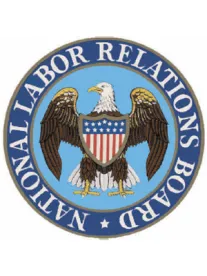On July 27, 2020 the NLRB issued a supplemental decision involving a labor law successor employer, which unilaterally implemented terms and conditions of employment prior to commencing operations. The question presented was whether and to what extent the successor could take further unilateral action, free of the duty to bargain with the union. As discussed below, the Board determined that the applicable standard in such cases is whether the successor’s unilateral action was “reasonably encompassed” by the unilaterally imposed terms.
In a dispute between Tramont Manufacturing, LLC (the “Employer”) and United Electrical, Radio and Machine Workers of America, Local 1103 (the “Union”), the Employer took over diesel engine and parts manufacturing operations from a predecessor employer. As a successor employer, the Employer was not bound by the provisions of the collective bargaining agreement between the Union and the predecessor employer per NLRB v. Burns International. Because the Employer was a Burns successor, it was free to unilaterally implement new terms and conditions of employment, which it did in the form of an employee handbook that included a provision establishing the Employer’s power to and procedure for unilaterally implementing layoffs.
After establishing these new terms and conditions of employment (including the layoff provision), the Employer hired the predecessor employer’s represented employees. Subsequently, the Employer initiated layoffs without first bargaining with the Union. The Board determined that, per the new terms and conditions of employment, the Employer had no obligation to bargain with the Union over the decision to initiate the layoffs. However, the new terms and conditions of employment did not relieve the Employer of its duty to bargain with the Union over the effects of the layoff decision.
To begin its analysis, the Board dispensed with the contract-coverage and clear and unmistakable waiver standards, finding them inapplicable when determining which subjects of mandatory bargaining have been displaced by a Burns successor. The Board determined that the contract-coverage standard—used to determine whether an employer’s unilateral actions are consistent with the terms of a bargained for collective bargaining agreement—is not applicable in the context of a Burns successor, because a union does not agree to the successor employer’s unilaterally implemented terms and conditions of employment. Accordingly, there can be no “contract coverage” because there is no bargained-for contract governing the union-employer relationship.
Likewise, the clear and unmistakable waiver standard—used to determine whether an employer’s unilateral actions are consistent with contractual language, bargaining history, and past practices—is not applicable in the context of a Burns successor, because the union and the successor employer, by definition, have no bargaining history or past practices. Accordingly, the Board determined that a successor employer’s unilaterally implemented employment terms cannot operate as a waiver of a union’s right to bargain over mandatory subjects of bargaining.
Instead, the Board clarified that, in the context of unilaterally imposed terms and conditions of employment, a successor employer is free to take actions that are reasonably encompassed by the unilaterally implemented terms and conditions without first bargaining with the union. However, in the absence of an applicable exception, an employer generally must bargain with the union over the effects of a decision or action, even if the decision or action itself does not require bargaining.
The standard established by the NLRB in this case is similar to the “contract coverage” standard applicable in cases where the terms and conditions have been established in a collective bargaining agreement. Here, however, the successor has the ability to set initial terms and conditions unilaterally. This gives the successor employer the advantage of using language of its own choosing—language that can “reasonably encompass” anticipated needs to make unilateral business decisions free from the duty to bargain over those decisions.





 />i
/>i

